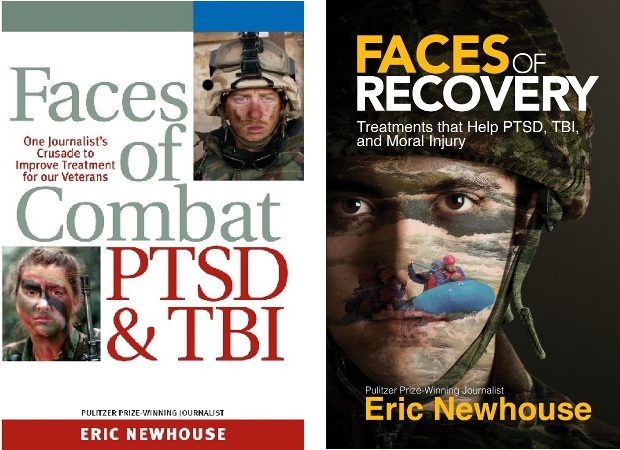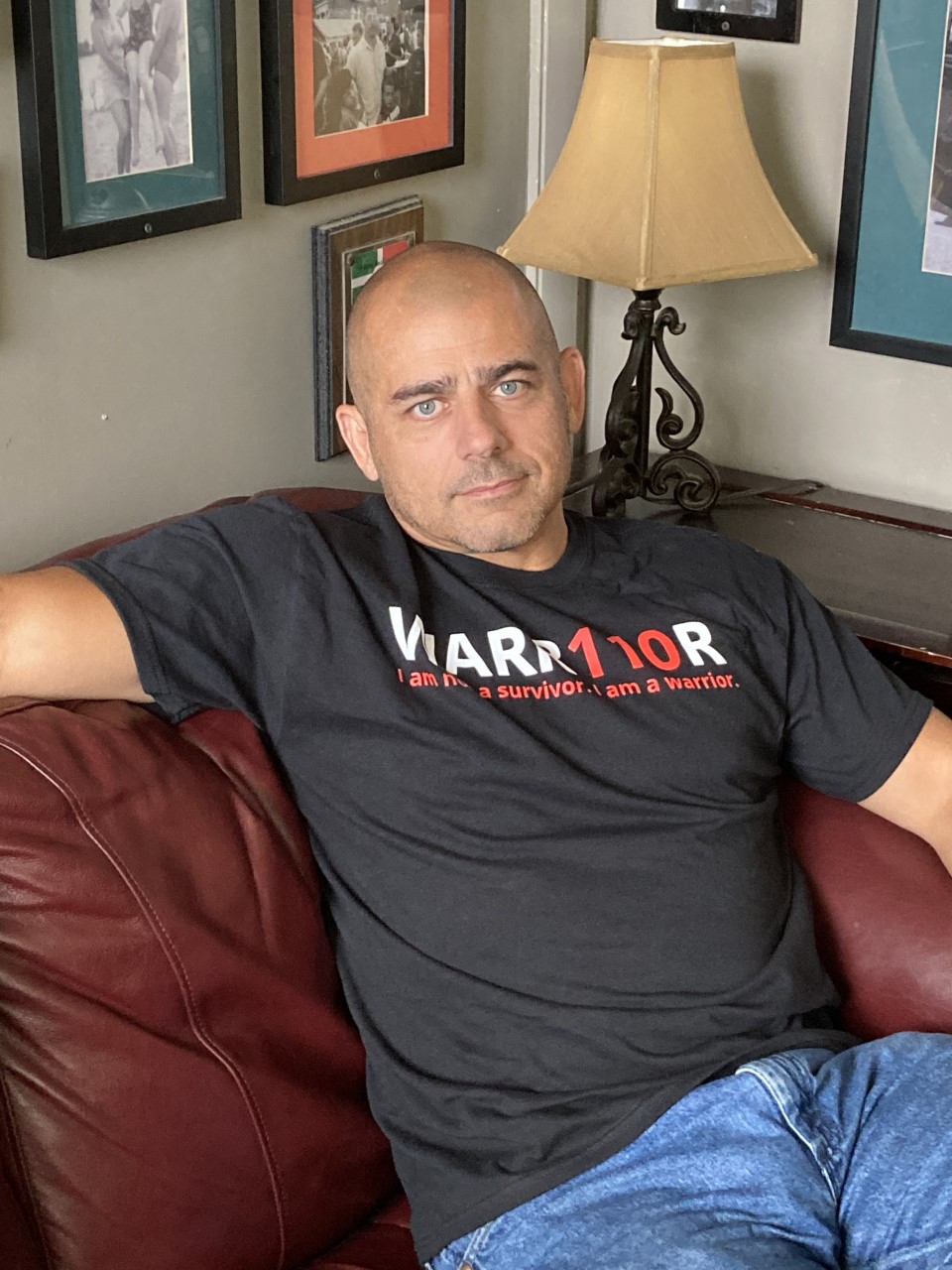As we pause today to remember that morning, 80 years ago, when the Japanese attacked Pearl Harbor, I can’t help but think of all who fought and died in the years that followed. I don’t believe I have ever met anyone who didn’t have a father or grandfather sent oversees during WWII, or served themselves. I personally had three grandfathers take part in that war. As a child, I remember thinking how strong they all were. They were tough as nails, in my eyes, almost appearing to be invincible. As I grew older, and began to realize what all they had been through, my respect and admiration for each of them grew even larger.
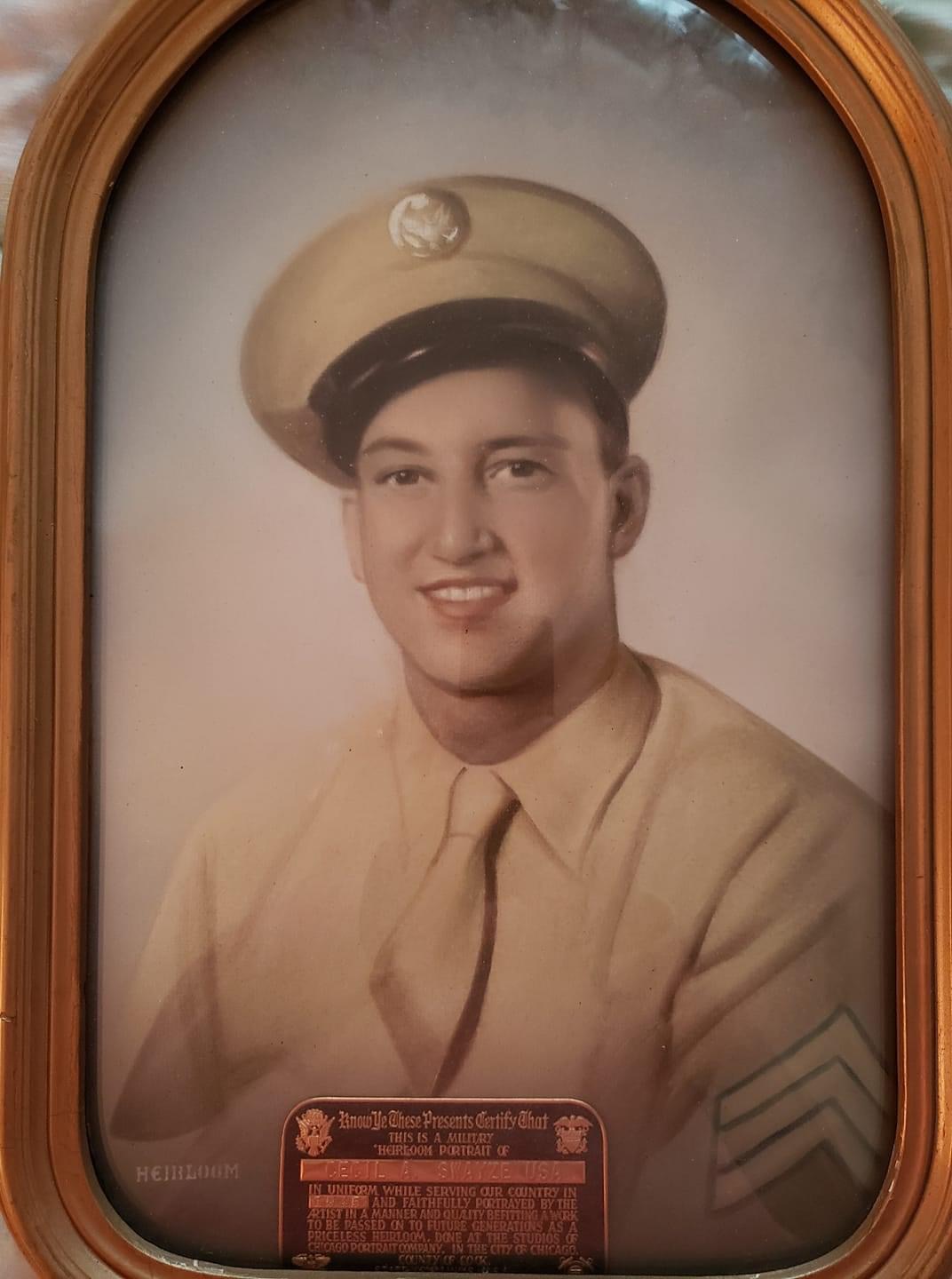
Cecil A. Swayze was my paternal grandfather. He left his wife and two young sons at home to join the U.S. Army in 1943. He became a scout for the Army, one of the most dangerous positions to have. He worked his way up to Sergeant and served under General George Patton, beginning in Africa and eventually fighting in The Battle of the Bulge. Like many others did after they returned home, he joined the National Guard and became a Captain. Due to his lack of a high school diploma, he was unable to advance any further though. During his years at war, he received the Silver Star, the United States Armed Forces’ third-highest military decoration for valor in combat. Although he had stories of near-death experiences while oversees, he went on to have two more children after the war ended and died at the age of 85.
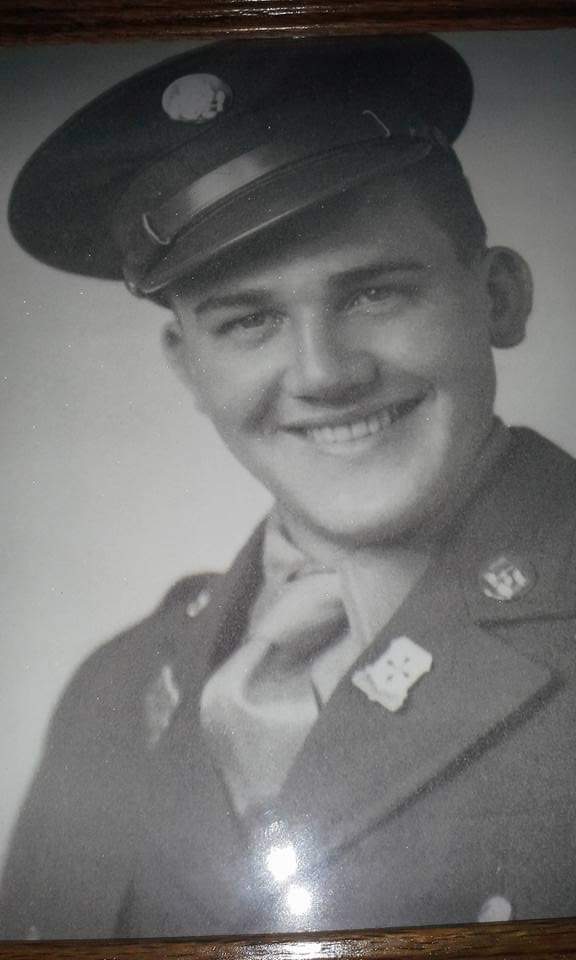
William Fred Harrell was my maternal step-grandfather, but to me he was simply Papaw Fred. He was known to his Army buddies as “Slim” or “Shanks”, due to his long, thin legs. Fred was a Staff Sergeant in the U.S. Army 96th Infantry Division. Serving under General Simon Buckner, during the “Operation Iceberg” Invasion of Okinawa, his division was credited with the most enemies killed of any U.S. Army Division during WWII. This earned them The U.S. Presidential Unit Citation, given to only three WWII divisions, for extraordinary heroism. Fred was also the recipient of several other awards, including two Bronze Stars, Combat Infantry Badge and the WWII Victory Medal. Fred spent the next 70+ years of his life working hard, hunting and enjoying visits with his family and many friends. Fred lived to be 96 years old.
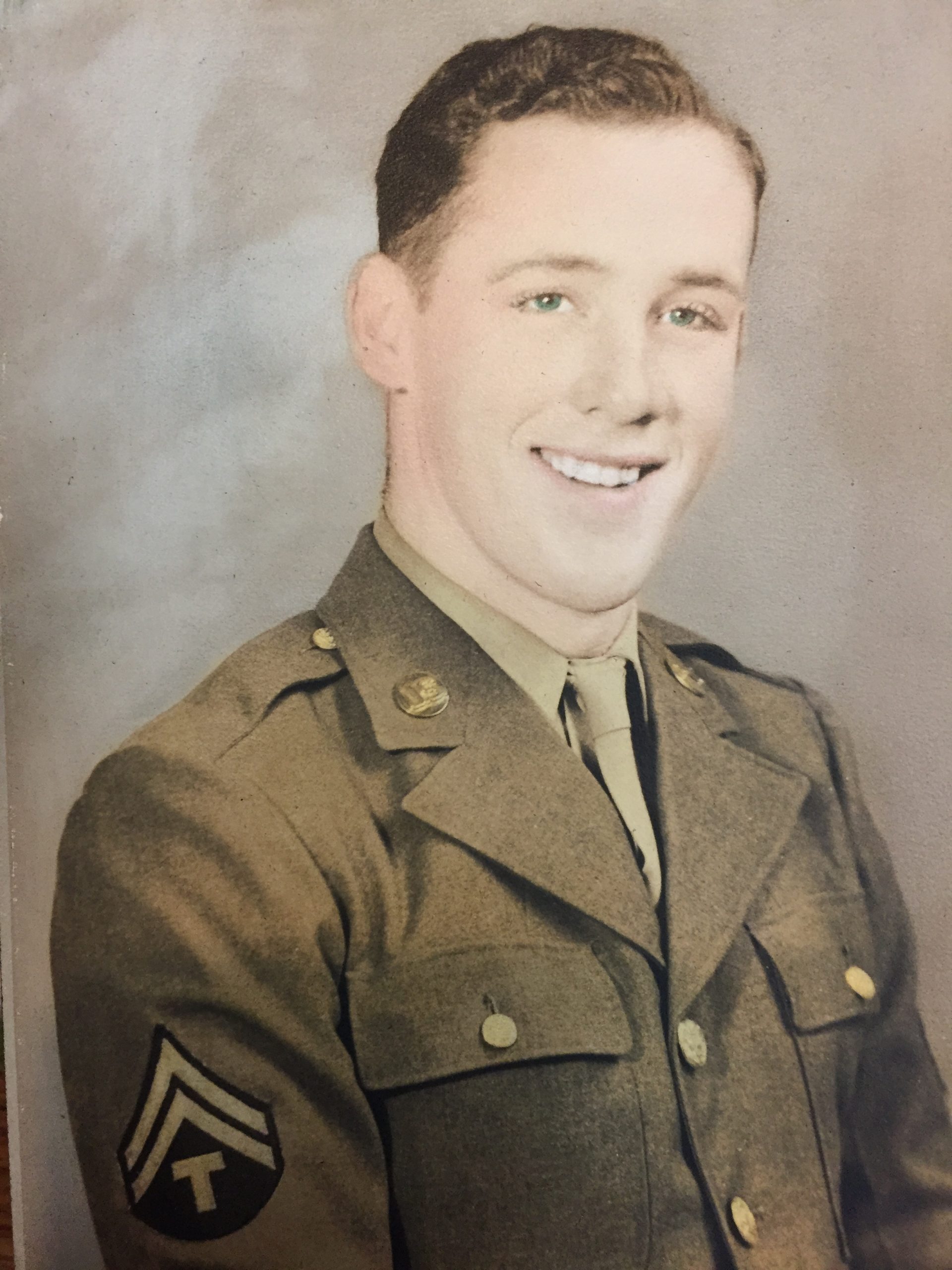
John B. Harrison was my step-grandfather. He served in a Signal Corps unit in the U.S. Army during WWII, laying communication lines ahead of the front line. I don’t know a lot about my grandfather’s time during the war. It’s not something he spoke about, and my 95 year old grandmother doesn’t remember very many of the details. I do know that, despite the war, he lived a good long life, passing away from cancer at the age of 82, with his family by his side.
As with many families across the U.S., the conversation of war and what these men had endured during those years was sort of a taboo topic in my family. I was always curious to know their stories, but too afraid of upsetting someone if I asked the questions. My Papaw Fred once told me, as we prepared to celebrate Independence Day, “I’ve seen enough fireworks to last me a lifetime”. Since that day, I’ve struggled to fully enjoy fireworks myself, knowing that they are a huge trigger for so many of our service men and women. The few stories that I have heard about my grandfather’s experiences are enough to give you nightmares. It’s like something out of a fictional story, too horrific to possibly be true. However, they aren’t fictional stories conjured up in someone’s warped mind. They are the memories of our loved ones. The memories that have haunted their days and nights for many years. The war may have ended for us, but it was only the beginning for them. There is a reason why these men were so strong. They had to be. They didn’t have any other choice.
I hope that you will take a moment today to stop and remember. Remember Pearl Harbor. Remember the families who lost their fathers, husbands and sons. Remember our veterans that gave so much for our freedom. They are truly a generation of men to be honored and respected.
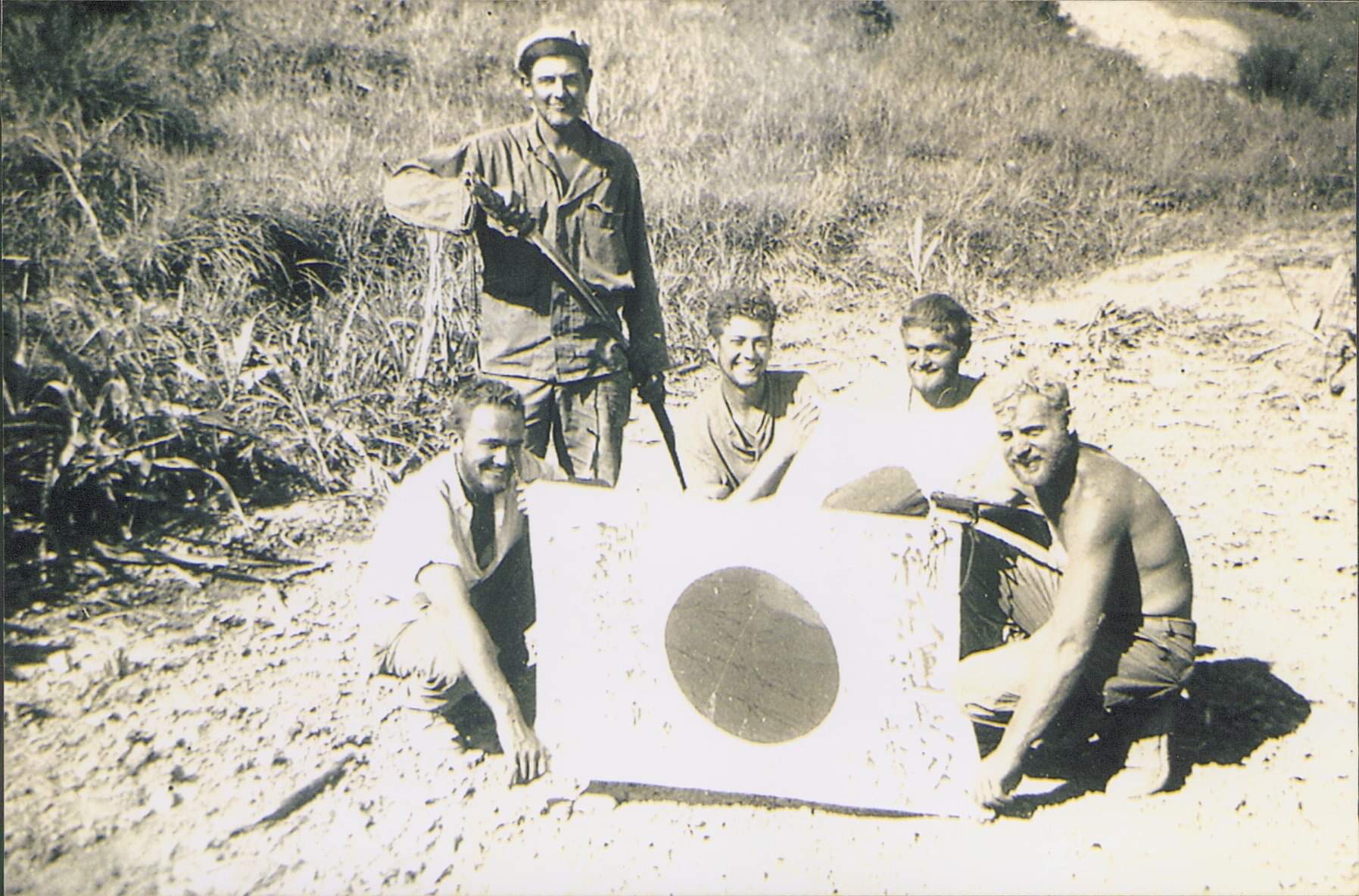
Part of the 96th Infantry Division, Okinawa, 1945 (Fred Harrell, bottom left)
